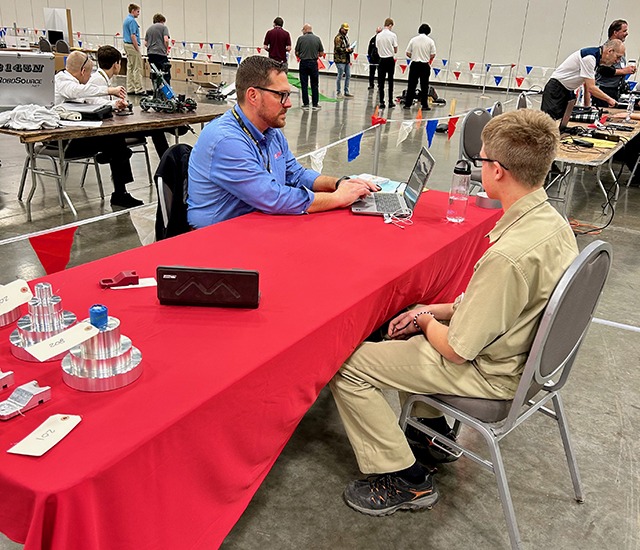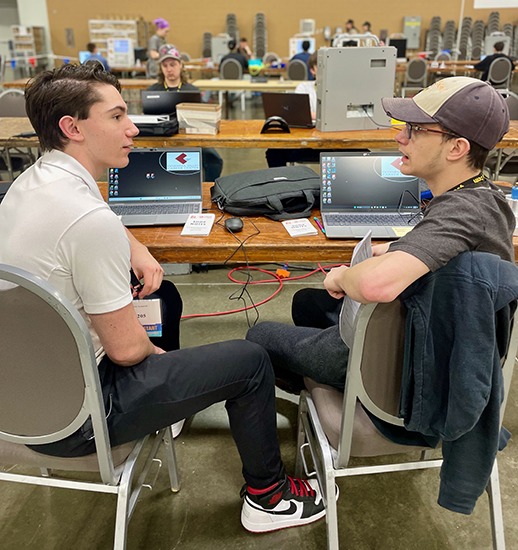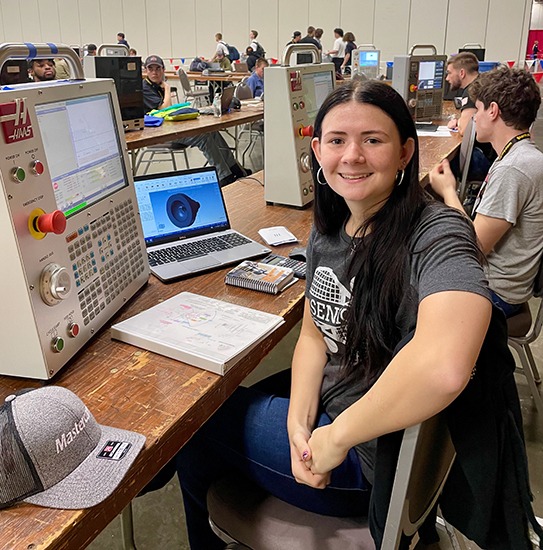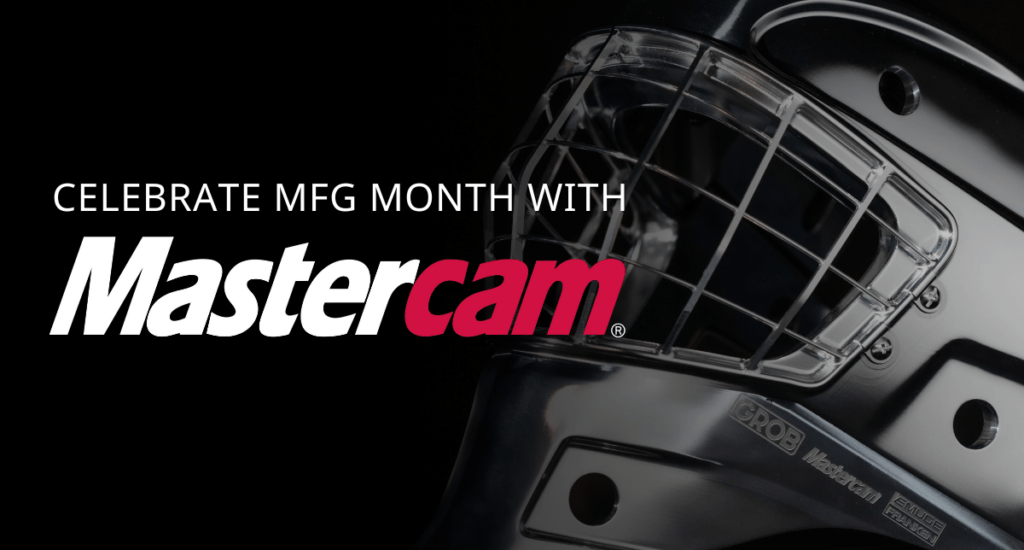
At every SkillsUSA state conference in the US, there’s a general buzz – whirring, buzzing, pounding and conversation. At the Ohio SkillsUSA competition, amid the energetic din, there’s a large square full of students that’s nearly silent. This area of quiet, intense focus is the CNC programming competition area.
In most other states, there is some machining component to competition day, but space restrictions meant officials had to adapt program guidelines to allow for students to machine their parts ahead of time and bring them to the event.
Since participants have machined their parts ahead of time, the buzz of machinery is absent here. The focus is on the programming itself, so competitors only bring their completed part, their resumé, and their programming tool of choice – either their laptop or their CNC.
Midwest competitors all participated in 2-Axis Turning, 3-Axis Milling, and general CNC Programmer competitions, and a few states – Michigan, Illinois and Kansas – held a 5-Axis Milling Programmer competition as well.
While not every state in the Midwest welcomed CNC programmers to their events, every state has local level students learning the skill.
“In some of the more agricultural states, you don’t have as much focus on manufacturing,” said Clint Smith, Mastercam’s Senior Education Market Specialist. “In those areas, we see a bigger focus on mechanical repair than manufacturing, but we’re always there to support the students that do opt for manufacturing trades.”

In manufacturing-heavy states like Michigan, Ohio, Indiana, and Illinois, SkillsUSA industrial and STEM programs are highly competitive. For students, this means that they really need to know what they’re doing to stay competitive at SkillsUSA and in the job market.
In Ohio, Parrott and Karl were a part of a group of educators that pushed to add regional competitions within the state.
Other trade skills groups within the organization’s umbrella have been holding regional competitions for years, and the educators felt it was time for CNC programmers and machinists to do the same. They felt this improved the quality of state qualifiers and winners, giving Ohio winners a better shot at winning on the national level. They worked with local organizers, and with the SkillsUSA technical committee, and launched regional competitions during the current academic calendar.
“We need to keep challenging the students,” said Karl. “The skills they need are constantly evolving, so SkillsUSA has to constantly evolve to keep up.”
One such student, Faith Jennings, is a senior at Bellevue High School in Bellevue, OH. Jennings has enlisted in the Army, with the goal of becoming a tank mechanic. For her, SkillsUSA was a way to learn to perform under pressure.
“I know that there will be times where I have to do my job under a lot of stress,” she said. “I wanted to compete at SkillsUSA so I know what that might be like.”
Many of Jennings fellow competitors expressed similar thoughts. Some were competitive by nature and enjoyed the challenge. Others have big goals, and participating at SkillsUSA is an added achievement for their resumé. Most of these students chose Mastercam for competition because it is what their future employers will use. Jennings, though, had a somewhat unique take:

“I like Mastercam because it lets me be curious about how to make things,” said Jennings. “I can simulate whatever I think up.”
Backing up these highly skilled and curious students is a group of educators that regularly go above and beyond to ensure their students have the education they need to succeed.
“We do everything we can to make sure we’re teaching students how to be true machinists,” said Chris Karl, Precision Machining Technology Instructor at Pioneer Career and Technology Center in Shelby, OH. “We’re not just churning out button pushers. We’re educating machinists, and they must be able to think on their feet, problem solve, and take ownership of their work.”
Rich Parrott, Machine Technology Instructor at Cuyahoga Valley Career Center in Brecksville, OH, agrees with this sentiment, expressing his pride in his students and how hard they work.
Both Parrott and Karl agree that a big part of their education is their ability to work on real projects in a real manufacturing environment.
Parrott goes on to explain that because Mastercam “works like a machinist needs to think,” it is the easiest for students to understand because it “flows with their thought process.”
“Partners like Mastercam are our most valuable assets,” said Parrott. “They give students the ability to program and work on real machines. When they graduate, they’re ready to work, not ready to be taught how to do their jobs.”
For more information on Mastercam’s SkillsUSA program, please visit https://www.mastercam.com/community/competitions/skills-usa/ or to find out more about SkillsUSA, please visit https://www.skillsusa.org/.


